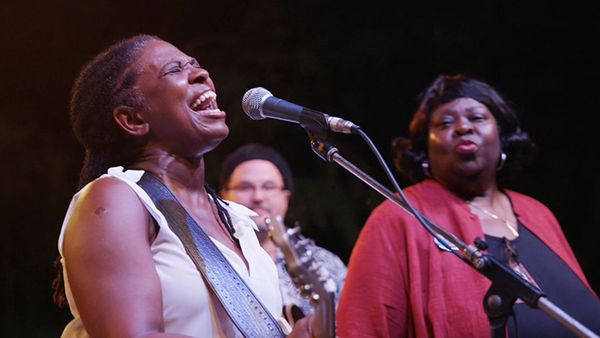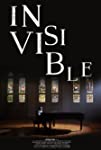Eye For Film >> Movies >> Invisible: Gay Women In Southern Music (2021) Film Review
Invisible: Gay Women In Southern Music
Reviewed by: Jennie Kermode

Country music is often described as three chords and the truth, but the reality is that it leaves more room for some truths than others. There are very few musical genres with so little diversity. Race and gender are obvious issues, but beyond that, it’s vanishingly rare to hear the voices of LGBT people – at least openly and directly. In this documentary, TJ Parsell uncovers the stories of women who, because they were lesbian or bisexual, never had the chance to develop their careers. Their talent is clear from their role as successful songwriters for heterosexual musicians, and from one performance delivered specially for this film, and between them they’ve made quite an impact on the industry, but many of them are telling their own stories for the first time.
Bonnie Baker, Mary Gauthier. Emmylou Harris. Many country fans will be able to find these names in their record collections, and there are several more. The presence of Chely Wright makes clear that this is not about ancient history – her career took a nosedive when she came out in 2010, and although she has continued to make a living from music since, she has had to move into other genres, away from her first musical love. The same thing happened 20 years earlier to kd lang, who is not present here but is spoken of which admiration for both her talent and her courage, with regret and sympathy for that talent being taken elsewhere.
The industry is rather insular and very much centred on Nashville, so the women know each other and some have friendships going back across decades. Also present is Cidny Bullens, who has transitioned during that time and reflects on the contrast between his experiences of the industry as a man and what it was like when he was living as a woman. This points up an inescapable complication in the central theme: this is still an incredibly sexist environment. It can be hard to tell when discrimination relates to sexuality or just to sex. What we see in archive footage is unpleasant enough. Stories of what women have had to endure behind the scenes – on the understanding that if they didn’t let radio DJs grope them then they wouldn’t get any airplay – are just horrific. Very little has been done about this to date. It’’s heartbreaking to hear one woman explain that she slept with a powerful man in the industry because she thought that then he might treat her better – a naive hope which many young performers must have shared, making them easy to abuse and exploit.
The core of the problem, as it is framed here, is the stranglehold that a small number of DJs and radio station executives have on the industry, as most fans still hear new music predominantly over the radio. In this context it’s hard enough for new musical ideas to break through, let alone new social ones. Yet whilst Parsell clearly hopes that this film will help to bring about change, his primary focus is on giving viewers the chance to get to know what they’ve been missing out on. Writing for someone else, his contributors attest, is just not the same. They all have interesting stories to tell, and are remarkably candid, given that they know the risks involved in rocking the boat.
Country music fans will find that this film enriches their understanding of the genre and helps them make connections which were invisible to them before, but you don’t need to be a fan to enjoy the film. Like the best country songs, it uses a simple format well, and it’s the sincerity, charm and good humour of its contributors that carries it. It screened as part of Newfest 2021 and is one of those films which looks likely to build up a reputation over time based on word of mouth. Make sure you catch it if you get the chance.
Reviewed on: 06 Nov 2021















